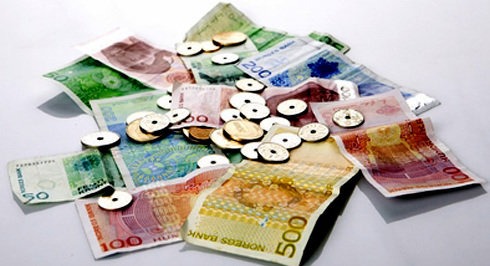NOK prevails as the only accepted local gambling currency

Despite attempts by Norwegian officials to make the country’s gambling laws less restrictive, there has been no success so far. This leaves only two gambling operators active in Norway and the Norwegian krona as the only accepted currency for gambling.
Gambling laws in Norway
As a mainly Christian society, most Norwegians have always viewed gambling negatively. Nevertheless, it still went on, and the Norwegian government sought to regulate the industry and perhaps even make it noble. Through a series of laws passed over the past century, gambling in Norway has become legal, although still heavily regulated. To make the practice seem nobler or at least beneficial to society, all proceeds from gambling are used for socially beneficial activities.
NorskeCasinoer.co lists the following laws overseeing gambling in Norway include:
- The Norwegian Penal Code of 1902, which legalized games of chance only such as dice games. Besides the allowed games, the legislation also defined the parties that would be given the license to host gambling events. The government would only offer the license to a select number of holders in order to maintain some supervision over gambling activities
- The Totalisator Act of 1927 then legalized gambling for sports, particularly horseracing. However, only one group, Norsk Rikstoto, was given the license to offer horseracing bets. Norsk Tipping was then established after the Second World War to offer national lotteries. Norsk Tipping was and is still a branch of government under the Ministry of Culture and Church Affairs
- The Gaming Act of 1992 extended the types of gambling allowed beyond horseracing and games of chance. Now other types of bets were allowed including poker, scratch card games, keno, etc.
- The lottery Act of 1995 was only a revision to the previous gambling law, defining in more detail what the Norwegian government considered gambling
Through all the gambling laws in Norway, one thing remains clear; the government has a lot of control over its residents’ gambling activities. Compared to other regions in Europe and Forex regulations, Norway has some of the most restrictive gambling legislation.

How the NOK prevailed as a gambling currency
As it stands now, the gambling legislation in Norway are quite restrictive and this may have stifled the industry’s growth. Furthermore, there are only 2 gambling providers allowed to operate in Norway, Norsk Tipping and Norsk Risktoto, and both of them have strict government monitoring. Accordingly, only the NOK is accepted by these companies as the local gambling currency.
Norwegians have even attempted to sign up with foreign online gambling providers to find better odds and participate in more games. These foreign companies have felt the need by Norwegians and now most of them accept deposits in NOK without having to change currency. Despite being in a foreign region with foreign currency, these companies’ acceptance of the NOK has reinforced the currency’s position as the dominant gambling currency.
Of course, gambling with foreign companies other than the 2 allowed to operate in Norway is illegal, but the penalty is rarely enforced. There has been pressure both within and from other countries and gambling companies, but Norway has still been reluctant to loosen gambling legislation. Furthermore, since Norway is not a member of the EU, the EU gambling regulations do not have to be adopted in Norway.
So far, with the set regulations, the NOK is still the most prolific currency for gambling and even with the foreign companies in play, most Norwegians still use the allowed companies.


























Comments (0 comment(s))